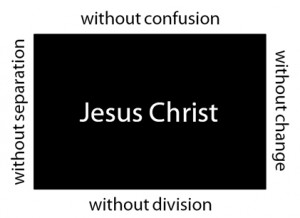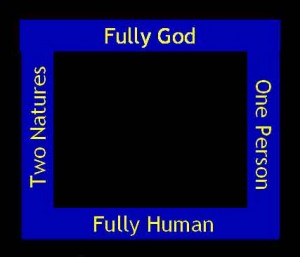 Pastor John, when the second Person of the Trinity (identified as “the Word” in John 1:1) became flesh (John 1:14) did this signify a change in the Godhead in some way? I have heard more than one preacher say that in becoming man, He laid aside His divine characteristics such as omnipresence (being everywhere present) and omniscience (knowing all things). Is this true?
Pastor John, when the second Person of the Trinity (identified as “the Word” in John 1:1) became flesh (John 1:14) did this signify a change in the Godhead in some way? I have heard more than one preacher say that in becoming man, He laid aside His divine characteristics such as omnipresence (being everywhere present) and omniscience (knowing all things). Is this true?
Thanks for writing in. The answer is a resounding “no” to both of your questions. The Godhead has not changed one iota and never will. God is both eternal and immutable (unchanging). Malachi 3:6 says, “I am the Lord, I change not.” I would also say that Christ in no way laid aside His divine attributes at any time (though by becoming a man, those attributes were veiled to us).
Its important to know that these kind of questions are not new to our generation, but Christian scholars throughout the centuries have grappled with them and found biblical answers. To combat the gross heresy that was seeking to gain inroads in the Church, Christian leaders met together at the Council of Chalcedon in 451 AD, to search the Bible and properly define what we call “the hypostatic union” – the union of the two natures of Christ. Here at this Council (based on the revelation of Scripture) Jesus Christ was declared to be one Person with two natures, one that is fully human and one that is fully Divine. These two natures are united in the one Person. These natures can be distinguished from each other but never separated. How exactly this union of the two natures takes place is very much a mystery but it is certainly the case. Colossians 2:9 tells us that Christ is the fullness of Deity in bodily form.
The statement of the council was:
We, then, following the holy Fathers, all with one consent, teach people to confess one and the same Son, our Lord Jesus Christ, the same perfect in Godhead and also perfect in manhood; truly God and truly man, of a reasonable [rational] soul and body; consubstantial [co-essential] with the Father according to the Godhead, and consubstantial with us according to the Manhood; in all things like unto us, without sin; begotten before all ages of the Father according to the Godhead, and in these latter days, for us and for our salvation, born of the Virgin Mary, the Mother of God, according to the Manhood; one and the same Christ, Son, Lord, only begotten, to be acknowledged in two natures, inconfusedly, unchangeably, indivisibly, inseparably; (?? ??? ??????? ?????????, ????????, ??????????, ????????? – in duabus naturis inconfuse, immutabiliter, indivise, inseparabiliter) the distinction of natures being by no means taken away by the union, but rather the property of each nature being preserved, and concurring in one Person (prosopon) and one Subsistence (hypostasis), not parted or divided into two persons, but one and the same Son, and only begotten God (???????? ????), the Word, the Lord Jesus Christ; as the prophets from the beginning [have declared] concerning Him, and the Lord Jesus Christ Himself has taught us, and the Creed of the holy Fathers has handed down to us.
The human nature of Jesus is not half human and half divine, but fully human. Likewise, the Divine nature of Christ is not half Divine and half human, but fully Divine. The human nature has the attributes of human-ness; the divine nature has all the attributes of Deity.
John Calvin in addressing this, once wrote:
“[Although] the Word in his immeasurable essence united with the nature of man into one person, we do not imagine that he was confined therein. Here is something marvelous: the Son of God descended from heaven in such a way that, without leaving heaven, he willed to be home in the virgin’s womb, to go about the earth, and to hang upon the cross; yet he continuously filled the world even as he had done from the beginning!” [Institutes, 2:13:4.]
Knowing this helps us enormously as we read the New Testament. Often we see statements that could only be true of the human nature of Christ. We read that He increased in wisdom, He was hungry, tired, and so on. We are even told that He did not know the date of His second coming and only His Father did. Here we have a statament that would not be true of Him as to His Deity, for as God, He knew all things; and therefore it is a reference to His humanity, where the attribute of Deity (in this case omniscience) did not communicate that knowledge to His human nature. Jesus was omniscient with respect to His divine nature but temporal and changeable with respect to his human nature.
Another evidence of the humanity of Jesus is the fact that He died. Preachers often mistakenly say that God died on the cross, and some hymns even say this. I am sure we have all heard the hymn that declares, “Amazing love, how can it be that Thou my God shouldst die for me” but were that to happen in reality, the whole Universe would be destroyed. That is because as God, all things are held together in Him. The Universe would not exist for even a second if God died. No, it is totally impossible for God to die. Jesus died as pertaining to His humanity, not His deity.
This is all extremely mysterious of course, but what the Council of Chalcedon did not remove this mystery. However, it did show us the boundaries regarding orthodoxy, as to what is orthodoxy and what is heresy. When we seek to go beyond Chalcedon’s declarations, to use the expression of one scholar, “we simply choose our heresy.” In that sense, Chalcedon was a “terminal” council in the sense that it would be extremely hard, if not impossible, to state how the two natures function in Christ’s one Person with any more precision that the council has stated.
What adds to the mystery is that we are not aware of anything in this earthly realm that is fully one thing while at the same time fully something else. That’s why all earthly analogies fail.
I did read recently of one attempt though, that probably gets us as close as possible to being a good analogy, though even here, it is flawed. James Anderson from Reformed Theological Seminary in Charlotte, North Carolina wrote:
“An analogy (albeit an imperfect one) may help to clarify this distinction. In the movie Avatar the protagonist, Jake Sully, is enlisted to operate a Na’vi-human hybrid body. Given the close mental connection between Sully and his ‘avatar’—he acts and experiences everything through that body—we might well say that he inhabits the hybrid body and that he now has two bodies. So consider this question: Can Sully run? Well, yes and no. He can’t run with respect to human body (he’s a paraplegic) but he can run with respect to his avatar body. Similarly, we can say that Jesus was resurrected with respect to his human nature but not with respect to his divine nature. Only in his humanity did he undergo change.”
If we can use our imagination for a moment and picture Jesus, shortly after His birth, it would be true to say that humanly speaking, He was fragile as He was being held in the arms of his mother; yet if we could peer for a moment beyond the physical, Jesus as God, was holding not only His mother, but every cell and atom together in this Universe. Talking of Christ, Colossians 1:16, 17 says:
“For by him all things were created, in heaven and on earth, visible and invisible, whether thrones or dominions or rulers or authorities—all things were created through him and for him. And he is before all things, and in him all things hold together.”
He is the Creator of all things and in Him all things hold together. That’s quite a thought isn’t it?
The last point I would make in all this is in reference to the Roman Catholic teaching of the Mass, where the belief is that the bread becomes the literal body, blood and divinity of Christ. This doctrine has many severe problems with it, not the least being that this is a denial of the Chalcedon statement because it would mean that Christ’s literal body is in more than one place at a time. If the mass is celebrated at a Church on 4th street, it cannot also be on 48th Street or 5th Avenue at the same time, and certainly not also in England, Australia and China. The human nature is human, with its many limitations, one of them being that it is always localized in one place.
What is amazing though is that when Christ was walking the streets of Jerusalem as to His humanity, in His Divinity, He was everywhere present, without any limitations. Such is the case today. The body of Jesus is at the right hand of His Father on the throne of the Universe, and yet, He is near to us and everywhere present with us in His Divinity. That is why the Reformers believed that in celebrating the Lord’s Supper Christ is fully present with us spiritually (rather than physically).
Jesus said, “And behold, I am with you always, to the end of the age.” (Matt 28:20) What a comfort this is. He is present with us even now. Talk to Him and enjoy sweet fellowship with the Master.
For more insight regarding the Incarnation and what it means, here is a very helpful article by Dr. James White entitled, “Beyond the Veil of Eternity.” I recommend it very highly. Dr. White deals especially with the Philippians 2 passages where it states He “emptied Himself,” not by losing anything essential to the divine nature, but (as the text says) by “taking the form of a servant.” This meant an addition, not a subtraction. A short article by Phil Johnson is also noteworthy, found here.

 Question: Why does the Bible say that Mary Magdalene and another Mary discovered the empty tomb, while another Gospel says that only Mary did, while another says that Simon joined them? This to me seems like inaccuracies in the Bible.
Question: Why does the Bible say that Mary Magdalene and another Mary discovered the empty tomb, while another Gospel says that only Mary did, while another says that Simon joined them? This to me seems like inaccuracies in the Bible. Pastor John, could you explain the term “Zion”? The word seems to mean different things in the Bible.
Pastor John, could you explain the term “Zion”? The word seems to mean different things in the Bible. “Let all the earth fear the LORD; let all the peoples of the world revere Him. For He spoke, and it came to be; He commanded, and it stood firm. The LORD foils the plans of the nations; He thwarts the purposes of the peoples. But the plans of the LORD stand firm forever; the purposes of His heart through all generations.” – Psalm 33:8-11
“Let all the earth fear the LORD; let all the peoples of the world revere Him. For He spoke, and it came to be; He commanded, and it stood firm. The LORD foils the plans of the nations; He thwarts the purposes of the peoples. But the plans of the LORD stand firm forever; the purposes of His heart through all generations.” – Psalm 33:8-11 You say that Christ died for His people, His sheep, His friends, for His Church and yet 1 John 2:2, speaking of Jesus, states, “He is the propitiation for our sins, and not for ours only but also for the sins of the whole world.” How do you explain that?
You say that Christ died for His people, His sheep, His friends, for His Church and yet 1 John 2:2, speaking of Jesus, states, “He is the propitiation for our sins, and not for ours only but also for the sins of the whole world.” How do you explain that?  Pastor John, I am confused. Romans 8:1 tells me that the one in Christ Jesus is no longer under condemnation and yet when I read the King James Version, that is not the case. My heart sinks to think that I have to live a life pleasing to God “in the Spirit” before I can be certain of my standing with God. I can never look at my life for even a day and say I am fully walking “after the Spirit.” I have anxious thoughts and sin is sadly a daily reality in my life. I can really identify with Paul’s struggle against sin in Romans chapter 7. Yet it would seem that Paul’s whole message of justification by faith alone would be destroyed if the King James Version rendering of the Romans 8:1 verse is correct. What is going on? Can you provide any insight here?
Pastor John, I am confused. Romans 8:1 tells me that the one in Christ Jesus is no longer under condemnation and yet when I read the King James Version, that is not the case. My heart sinks to think that I have to live a life pleasing to God “in the Spirit” before I can be certain of my standing with God. I can never look at my life for even a day and say I am fully walking “after the Spirit.” I have anxious thoughts and sin is sadly a daily reality in my life. I can really identify with Paul’s struggle against sin in Romans chapter 7. Yet it would seem that Paul’s whole message of justification by faith alone would be destroyed if the King James Version rendering of the Romans 8:1 verse is correct. What is going on? Can you provide any insight here? How does knowledge of the doctrine of election encourage/help those who are praying for lost loved ones? So many times, when discussing this doctrine for the first time, people feel discouraged and even desperate over the fact that someone that they love may or may not be elect. How can the truth of God’s election encourage someone who is praying that God will save a loved one?
How does knowledge of the doctrine of election encourage/help those who are praying for lost loved ones? So many times, when discussing this doctrine for the first time, people feel discouraged and even desperate over the fact that someone that they love may or may not be elect. How can the truth of God’s election encourage someone who is praying that God will save a loved one? Matthew 24:36 says, “But concerning that day and hour no one knows, not even the angels of heaven, nor the Son, but the Father only.”
Matthew 24:36 says, “But concerning that day and hour no one knows, not even the angels of heaven, nor the Son, but the Father only.” These are intentionally very precise theological statements. It is vitally important we get this right. Heresy awaits all who would veer from this safe biblical position. At Chalcedon it was affirmed that Christ was “perfect/complete in Godhood also perfect/complete in manhood, truly God and truly man.”
These are intentionally very precise theological statements. It is vitally important we get this right. Heresy awaits all who would veer from this safe biblical position. At Chalcedon it was affirmed that Christ was “perfect/complete in Godhood also perfect/complete in manhood, truly God and truly man.” In the Incarnation, the second person of the Godhead became a man. Colossians 2:9 says, “For in him the whole fullness of deity dwells bodily.”
In the Incarnation, the second person of the Godhead became a man. Colossians 2:9 says, “For in him the whole fullness of deity dwells bodily.”